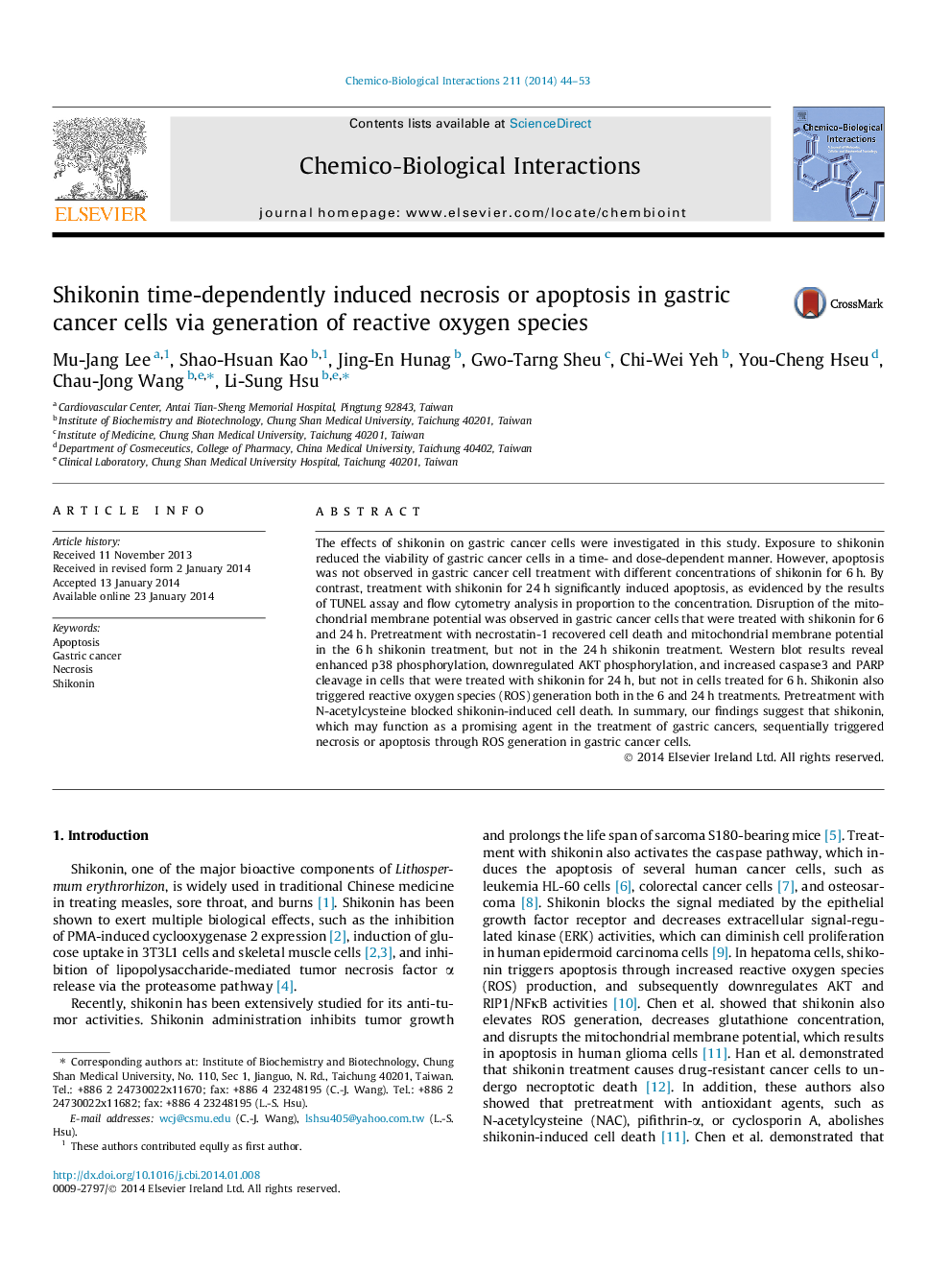| Article ID | Journal | Published Year | Pages | File Type |
|---|---|---|---|---|
| 2580424 | Chemico-Biological Interactions | 2014 | 10 Pages |
•Shikonin inhibited cell proliferation of gastric cancer cells.•Shikonin time-dependently induced necrosis and apoptosis in gastric cancer cells.•Shikonin enhanced reactive oxygen species generation in gastric cancer cells.
The effects of shikonin on gastric cancer cells were investigated in this study. Exposure to shikonin reduced the viability of gastric cancer cells in a time- and dose-dependent manner. However, apoptosis was not observed in gastric cancer cell treatment with different concentrations of shikonin for 6 h. By contrast, treatment with shikonin for 24 h significantly induced apoptosis, as evidenced by the results of TUNEL assay and flow cytometry analysis in proportion to the concentration. Disruption of the mitochondrial membrane potential was observed in gastric cancer cells that were treated with shikonin for 6 and 24 h. Pretreatment with necrostatin-1 recovered cell death and mitochondrial membrane potential in the 6 h shikonin treatment, but not in the 24 h shikonin treatment. Western blot results reveal enhanced p38 phosphorylation, downregulated AKT phosphorylation, and increased caspase3 and PARP cleavage in cells that were treated with shikonin for 24 h, but not in cells treated for 6 h. Shikonin also triggered reactive oxygen species (ROS) generation both in the 6 and 24 h treatments. Pretreatment with N-acetylcysteine blocked shikonin-induced cell death. In summary, our findings suggest that shikonin, which may function as a promising agent in the treatment of gastric cancers, sequentially triggered necrosis or apoptosis through ROS generation in gastric cancer cells.
